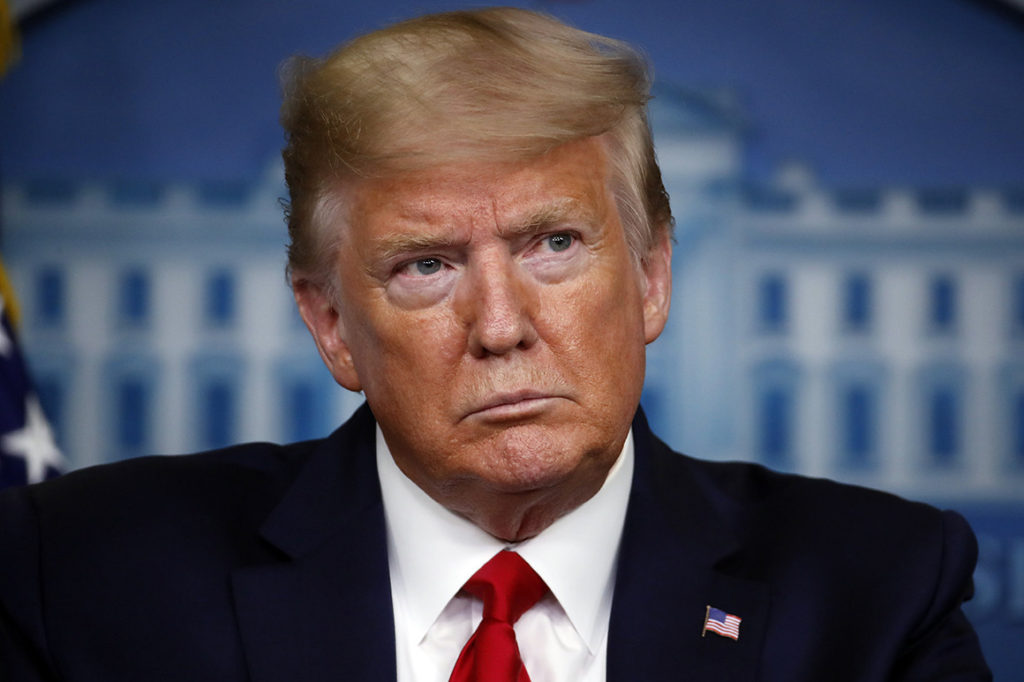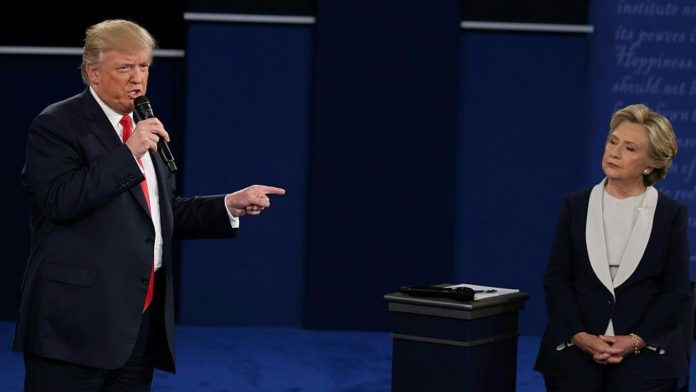Any U.S. presidential election comes with its own surprises but the 2016 presidential race is not only drawing attention and quite a bit of controversy in the United States – it is being watched very closely all over the world. The candidates and the issues being discussed by them will have far reaching effects, not just for American public policy but for leadership and policy throughout the world, especially in some hot spots like the Middle East. If we look closely at the unfolding scenario one aspect of this election becomes clear – never in the last 80 years have these generated so much interest worldwide – for all the wrong reasons one might add. The Republican Party candidate, business mogul billionaire and a one-time television reality show host, Donald Trump has been dominating the media land scape, creating opportunities to spew forth venom and stirring up more and more controversy as he goes along. His comments about banning Muslims from entering the US and building a massive wall between the US and Mexico to stop illegal immigration are just a few examples of the flamboyance exhibited by him, yet he has struck a chord with many. Despite his veiled racism being clearer than crystal, he was perceived not only to be the leading candidate in the polls to represent the Republican Party, he clinched the Republican Presidential nomination. He attracted record crowds everywhere he went; defying all logic. Now, only the Democratic nominee – Hillary Clinton – stands between him and the White House. For the benefit of readers I am reproducing my article titled “PASSAGE THROUGH DIVIDED AMERICA”.
Writing in his weekly “FUTURE TENSE – INFLECTION POINTS,” my friend Frederic Kempe, President of the Atlantic Council, says Donald Trump’s clinching of the Republican Presidential nomination has forever altered the American political landscape and bewildered the world about the American national mood and global purpose. He says that the US Presidential Primaries also reflect an America that has grown more fearful, less internationalist, and more sharply divided politically.
Like in the rest of the world, elections will bring into focus the ideological divisions among the Parties, in the US electorate this has sharpened among the Republicans and the Democrats. A recent “Pew Research Study” examines the greater polarisation between them on most important questions. Far more Americans (41%) think the US does too much abroad rather than too little (27%) or the right amount, (28%) the US public remains wary of global involvement. 48% Americans support increasing foreign aid to help poorer nations in Africa, Asia and Latin America, 50% oppose it. Many allies believe the US to be acting in a unilateralist fashion but roughly 51% Americans want its allies’ views taken into account when deciding its foreign policy while 40% want the US go it alone even if allies disagree, more than 70% back a shared leadership role in the world for the US.
Far more likely than the 47% Democrats, many more Republicans believe that the US should tackle its own domestic problems rather than helping other countries with theirs. Notably, roughly 67% of registered Republicans and Republican-leaning independents favouring Donald Trump express such isolationist sentiments, so do 54% of the Democrats who back Senator Bernie Sanders. 52% of registered Democrats and Democratic- leaning Independents rooting for Hillary Clinton favour the US helping other countries deal with their problems. Roughly 66% of Republicans oppose more foreign aid. 78% Trump supporters oppose increasing foreign aid, on the other hand 62% Democrats back increasing foreign assistance.
Generally wary of global economic engagement, only 44% Americans describe US involvement as good, providing the country with new markets and opportunities for growth, 49% Americans feel this lowers wages and costs jobs. These protectionist views differ along partisan lines. As far back as the 1992 Presidential Elections, Ross Perot Sr spoke against trade pacts that would take away manufacturing jobs from the US. A majority of 55% Republicans believe US involvement in the world economy to be a bad thing, 50% Democrats see it as good. 65% of Trump supporters think such economic engagement has not worked well for the US, 55% of Democrats and Democratic-leaning Clinton backers view it favourably.
Peggy Noonan writing in the WSJ says, “However they characterize themselves, a majority of GOP voters now are supporting the candidate who has been to the left of the party’s established thinking on a host of issues — entitlement spending, trade, foreign policy.” 9/11 had produced the largest increase of support for greater defense spending, more than 15 years later a more fearful America now supports even greater spending. More than 60% Republicans say the US should deal with its own problems and leave others to deal with theirs. Former US Defence Secretary Robert Gates says however, “America turning inward not only will make the world more dangerous for others, but also for us.”

Commentators who once predicted Trump would never be the Republican Presidential nominee are now preaching we must take his possible victory into contention. Those who consider Trump a possible winner make the same error that made them discount and dis miss him even as late as the Iowa and New Hampshire primaries. The polls accurately showed his appeal to a cross-section of Republican voters- but they refused to believe the polls. How could a strong field of talented candidates fail to stop Trump? What they failed to discern was that he was something different in a crowded field, he coalesced real support among a broad cross section of Republican voters.
The share of white voters in the electorate is now 69%, down by 2% since the last elections. Hispanic, Black, and Asian share have in the meantime grown. Among the 10.7 million increase in eligible voters, a large majority comes from non-white groups. Trump would have to win by unprecedented margins among whites to win many States. The bottom line is that without that, he loses.
As the most unpopular nominee in the last three decades to participate in the general elections, Donald Trump must take unprecedented shares of Black and Latino voters. 87% Latino voters (in Florida its 84%) have a negative view of Trump. In other Latino heavy swing states like Colorado and Nevada, it’s 91% and 87%, respectively. If Trump loses 87% of Latino voters nationwide (and nothing else changes from 2012), the Democrats can add 8 million more popular votes. There are no detailed polls of Black Americans about Trump, but most national surveys show disapproval among them in the 80% to 90% range. If Black turnout stays at its present trajectory, Trump will need to crack 15% with Blacks to win critical swing states from Democrats, unfortunately no Republican has secured more than 15 % of the black vote in 60 years.
With the Republican Party presently not yet united behind him, the Democratic Party on the other hand is operating at full strength throughout the country against him With the economy growing and the Democratic incumbent well-liked, Donald Trump has to transform himself into a totally different person to what he is presently to win. Unlike Republicans, Democrats will target Trump from all directions, exploiting weak nesses that Republicans didn’t touch until it was too late to stop Trump. They will attack him for his open and vicious misogyny and publicize his history of racism and discrimination; they will repeat the stories of ordinary people whom he has supposedly scammed and/or defrauded; they will focus on his skewed vision about the world.
Burning with anti-establishment rage and white identity politics, Republican base voters cheered when Trump toppled traditional politicians. They applauded him when he called for a wall with Mexico and a ban on Muslims. But the same polls that showed Trump at the top of the GOP primary also put him far behind in a general election. Like his predecessors on the fringe, Trump is anathema to ordinary voters. That is why the hard-core Republican Establishment is worried sick about a possible political disaster in November 2016.
Could Trump possibly be a “Goldwater” moment for the Republican Party?




